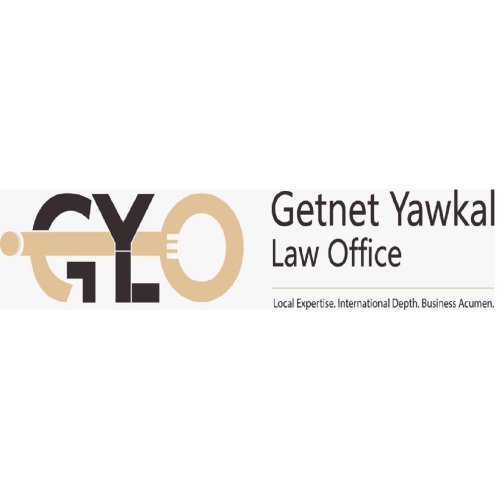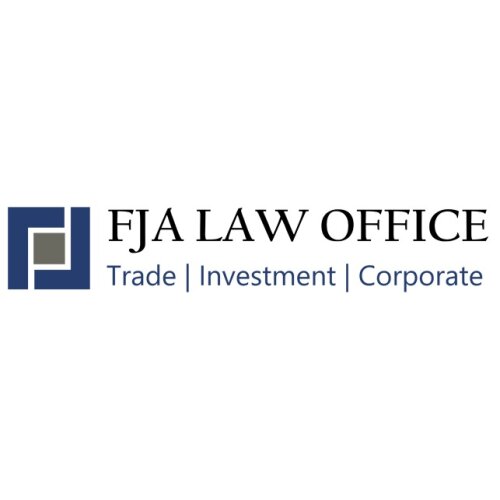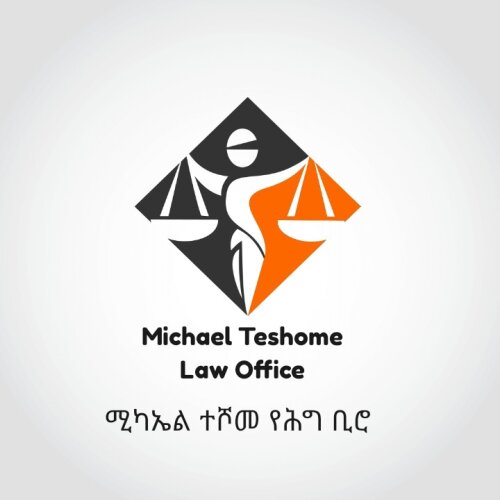Best Sanctions & Export Controls Lawyers in Addis Ababa
Share your needs with us, get contacted by law firms.
Free. Takes 2 min.
List of the best lawyers in Addis Ababa, Ethiopia
About Sanctions & Export Controls Law in Addis Ababa, Ethiopia
Sanctions and export controls are legal frameworks designed to regulate the movement of goods, services, and technologies across international borders. In Addis Ababa, Ethiopia, these laws are shaped by both national regulations and the country’s obligations to international treaties and United Nations Security Council resolutions. The primary goals are to ensure national security, comply with international sanctions, prevent illegal trade, and support foreign policy objectives. It is critical for businesses and individuals operating in Ethiopia to understand these rules to avoid violating the law, since non-compliance can lead to significant penalties.
Why You May Need a Lawyer
Navigating sanctions and export controls can be challenging. Lawyers who specialize in this field provide essential guidance to ensure compliance and protect your interests. You may require legal assistance if you:
- Are exporting goods or technology from Ethiopia and are unsure about applicable restrictions
- Conduct business with entities or individuals from countries subject to sanctions
- Need to understand the risk of secondary sanctions imposed by foreign authorities
- Are involved in international banking, finance, or trade and need compliance programs
- Have been notified of an investigation or enforcement action regarding sanctions or export controls
- Seek to resolve customs or licensing issues with Ethiopian authorities
- Require due diligence on your business partners or supply chain
- Need to design or audit compliance policies and training for your staff
Local Laws Overview
In Ethiopia, the legal regime governing sanctions and export controls includes customs regulations, investment laws, and international sanctions laws. The Ethiopian Ministry of Trade and Regional Integration and the Ethiopian Customs Commission are key institutions responsible for enforcing these laws. Ethiopia implements sanctions based on United Nations Security Council decisions and other international obligations. Export controls extend to sensitive goods, strategic technologies, military items, and dual-use products, which may require special licenses. Violations can result in administrative fines, cargo seizure, business license suspension, and even criminal prosecution in severe cases. Businesses must also consider foreign laws, such as US or EU sanctions, when engaging in cross-border transactions.
Frequently Asked Questions
What are export controls?
Export controls are laws and regulations that restrict the export of certain goods, technologies, or services, especially those with potential security, economic, or environmental impacts.
Who enforces sanctions and export controls in Ethiopia?
The Ethiopian Ministry of Trade and Regional Integration, the Ministry of Foreign Affairs, and the Ethiopian Customs Commission are the primary authorities responsible for implementation and enforcement of these laws.
What types of goods are typically subject to export controls?
Commonly controlled goods include weapons, military technologies, dual-use items, chemical precursors, and advanced electronics or software with potential security uses.
Can I do business with a company or individual from a sanctioned country?
Doing business with individuals or entities from sanctioned countries can lead to severe penalties. Always consult a legal professional and conduct due diligence before entering such transactions.
How do I obtain an export license in Ethiopia?
You must apply to the relevant government authority, usually the Ethiopian Ministry of Trade and Regional Integration or the Ethiopian Customs Commission, providing necessary documentation and details about your products or services.
What happens if I violate export controls or sanctions?
Violations can result in administrative penalties, fines, confiscation of goods, suspension of trading licenses, and, in some situations, criminal charges.
Do international sanctions imposed by the UN automatically apply in Ethiopia?
Yes, Ethiopia is obliged to implement United Nations Security Council sanctions through its domestic legal system.
Are there record-keeping requirements under Ethiopian export control laws?
Yes, exporters and related businesses must maintain accurate records of transactions and export licenses as part of compliance and for possible audits by authorities.
How do US or EU sanctions affect Ethiopian businesses?
Even if based in Ethiopia, your business could face restrictions or secondary sanctions if transacting with sanctioned persons, entities, or countries under US or EU jurisdiction.
Where can I get up-to-date information about applicable sanctions and export controls?
It is best to monitor updates from the Ethiopian government, relevant ministries, and consult with specialized attorneys or compliance experts. Government websites, news releases, and legal advisories are important sources.
Additional Resources
Understanding sanctions and export controls is easier with the right resources. The following bodies and organizations can be helpful:
- Ethiopian Ministry of Trade and Regional Integration
- Ethiopian Ministry of Foreign Affairs
- Ethiopian Customs Commission
- United Nations Security Council Sanctions Committees
- Chambers of Commerce in Addis Ababa
- International trade lawyers and law firms with expertise in compliance
Next Steps
If you require legal assistance related to sanctions and export controls in Addis Ababa, Ethiopia, take the following steps:
- Identify and review the specific issue you are facing, such as export transactions, compliance worries, or business with foreign partners
- Gather all relevant documents, including contracts, licenses, and correspondence with government agencies
- Consult a lawyer experienced in sanctions and export controls to discuss your situation
- Follow their advice on compliance, risk mitigation, and required filings with government authorities
- Stay updated on changes in relevant laws and regularly review your export and compliance procedures
Taking early action and obtaining professional legal advice can safeguard your business and help you avoid costly mistakes when dealing with sanctions and export controls in Ethiopia.
Lawzana helps you find the best lawyers and law firms in Addis Ababa through a curated and pre-screened list of qualified legal professionals. Our platform offers rankings and detailed profiles of attorneys and law firms, allowing you to compare based on practice areas, including Sanctions & Export Controls, experience, and client feedback.
Each profile includes a description of the firm's areas of practice, client reviews, team members and partners, year of establishment, spoken languages, office locations, contact information, social media presence, and any published articles or resources. Most firms on our platform speak English and are experienced in both local and international legal matters.
Get a quote from top-rated law firms in Addis Ababa, Ethiopia — quickly, securely, and without unnecessary hassle.
Disclaimer:
The information provided on this page is for general informational purposes only and does not constitute legal advice. While we strive to ensure the accuracy and relevance of the content, legal information may change over time, and interpretations of the law can vary. You should always consult with a qualified legal professional for advice specific to your situation.
We disclaim all liability for actions taken or not taken based on the content of this page. If you believe any information is incorrect or outdated, please contact us, and we will review and update it where appropriate.

















